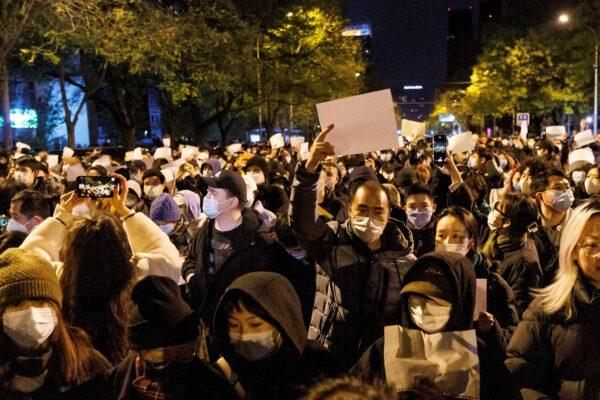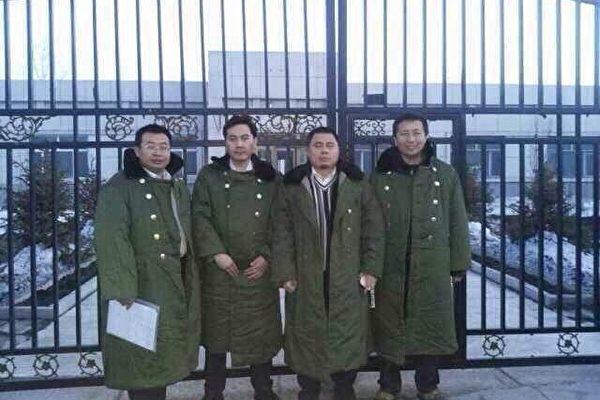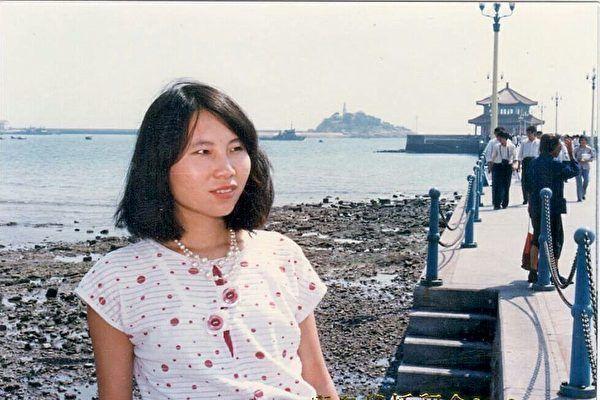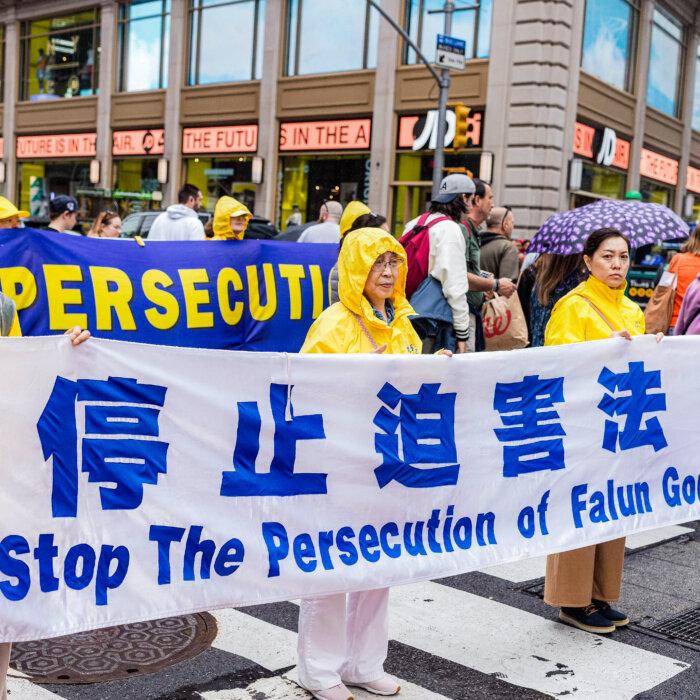March 20, 2024, marks the 10th anniversary of the Jiansanjiang Incident, a pivotal moment for Chinese rights defenders. Despite the widespread suppression of Chinese civil society in recent years, witnesses of the incident honor the spirit of resistance instilled by the Jiansanjiang Incident.
In 2014, four Chinese lawyers, Tang Jitian, Jiang Tianyong, Zhang Junjie, and Wang Cheng, went to the Jiansanjiang brainwashing center in northern China’s Heilongjiang province seeking the release of their clients, Falun Gong practitioners who had been illegally imprisoned for their beliefs.
Following the regime’s arrest and imprisonment of the four lawyers and their clients, rights lawyers from across the country and hundreds of citizens took part in the protest by visiting Jiansanjiang. In response to international pressure, the regime dissolved the notorious brainwashing centers, which they called legal education centers, shortly afterward, leading to the downfall of multiple officials.
Height of Chinese Rights Advocacy
The Jiansanjiang incident was considered a successful coordination between lawyers and citizens in advocating for their rights in contemporary China.Journalist Yang Zili was a participant in fundraising in support of the frontline rights activists for their travel expenses, accommodation, meals, and the procurement of essential supplies.
“A total of 390 supporters made the donation, most of them anonymous, as a precautionary measure against the authorities,” said Mr. Yang.
He stated that the Jiansanjiang incident occurred after the civil society movement gained momentum when the general populace worked with lawyers to pursue their rights during the era of former Chinese leader Hu Jintao.
Mr. Yang indicated that with Xi Jinping assuming office, there was a gradual shift towards tighter control, but he was mainly consolidating power by cracking down on internal opposition within the party at the beginning.
Mr. Yang said the Jiansanjiang incident took place before Xi started the comprehensive suppression of the populace.
He believed that the Jiansanjiang incident encouraged grassroots rights activism, followed by similar activities in other parts of China, such as Zhengzhou and Suzhou. However, the regime launched massive arrests of Chinese lawyers and activists on July 9, 2015, an incident known as the 709 Crackdown, marking a significant downturn in citizen resistance.
“The Jiansanjiang [incident] marked a pivotal moment in large-scale protests [of Chinese civil society] history. While there were subsequent incidents, none rivaled the magnitude of Jiansanjiang. Its historical importance lies in its accumulation of protest experience and the nurturing of numerous participants. Civil rights activists and lawyers continued to emerge, reflecting one of the successive waves of expression during the growth of civil society at that time,” said Mr. Yang.
Xi’s administration’s subsequent comprehensive suppression of civil society has resulted in a gradual sense of despondency among the populace; he said, “However, this despondency doesn’t imply inaction; rather, people resort to other means of resistance.”
In recent years, the authorities have escalated their suppression of freedom of speech, Mr. Yang said that it’s difficult for the general populace to openly express discontent in such an environment, but “ultimately, there’s a threshold to endure.”
The White Paper Movement, which erupted by the end of 2022, signifies the populace’s culmination of endurance, he said, “including Peng Lifai’s lone-wolf style of resistance preceding the White Paper Movement, which I believe is a continuation of the civil society resistance spirit fostered by the Jiansanjiang incident.”
“Whenever a suitable opportunity arises, a similar incident will once again erupt,” he said.

Yu Pinjian, a Chinese lawyer living in Japan, said that the authorities’ response to the lawyers and their clients demonstrated clearly how the Chinese defenders’ civil rights were blocked.
Jiansanjiang Incident
Falun Gong is a cultivation practice based on the universal principles of truth, compassion, and tolerance, which have been inherited from traditional Chinese culture and history.This campaign, aimed at eradicating Falun Gong, has involved some of the most egregious human rights violations, including torture, sexual abuse, and live organ harvesting.
Shi Mengwen, a Falun Gong practitioner from Heilongjiang, was one of the victims of the persecution campaign, which led to the imprisonment and torture of Mr. Shi and as many as 30 of his family members as of March 20, 2014.
According to Mr. Yu, the four lawyers were informed of a case involving the Shi family and decided to assist in the legal process to rescue the victims.
Lawyers filed complaints against the 610 Office at the procuratorate of Jiansanjiang on March 20, 2014. News emerged the next day that the authorities detained the four lawyers and their clients.
The online exposure of the incident led many volunteering lawyers and rights advocates to form a support group on behalf of the victim’s family members. Together, they went to Jiansanjiang seeking the release of the four lawyers and the Shi family.
However, the police arrested all supporting lawyers and volunteers.
According to Mr. Yu, the lawyers who arrived at the scene to support the hunger strike were released a few hours after being arrested. However, at that time, at least 15 citizens, including Chen Jianxiong, Zhai Yanmin, Jiang Jianjun, Zhang Shengyu, Sun Dongsheng, Li Baolin, Yuan Xianchen, Li Fawang, Liang Yan, Zhao Yuan, Zhang Shiqing, Liu Xing, Li Dawei, Zhang Yan, and Chi Jinchun, were detained for 15 days.
Throughout the country, many online posts demanded the supporters’ release. He said, “The public opinion surged, with a lot of support both online and at Jiansanjiang.” After that, the CCP’s Central Propaganda Department and State Internet Information Office sought to put out the rising indignation and issued orders to censor all related information.
CCP Fears Rights Lawyers
Lei Zhifeng was a lawyer in Hunan Province when the Jiansanjiang incident took place.On the Internet, he saw how the authorities were attacking the supporting lawyers. “Tears filled my eyes,” he said, “especially when the lawyers, wearing long coats, were beaten, I was deeply moved and also enraged. The authorities unlawfully detained lawyers and even resorted to violence against them.”
Following the incident, dozens of human rights lawyers from different regions across China jointly issued a statement strongly condemning and protesting against the courts’ brutal violation of lawyers’ professional and personal rights. Mr. Lei was also one of the signatories of this statement.
In addition, he composed multiple articles in support of the Jiansanjiang rights-defending activities.
Mr. Lei believes that, in hindsight, Chinese lawyers demonstrated the true essence of the practice in 2014.
He stated that at that time, lawyers were hoping to condemn local illegal activities even if they adhered to the laws decreed by the CCP. However, these CCP law-abiding lawyers’ rights-defending activities were deemed threatening to the CCP’s ruling, and the lawyers were brutally suppressed.
“Consequently, the individuals most likely to bring about positive change in China have either been arrested or have fled, and their lawyers’ licenses have been unlawfully revoked. This represents a turning point in China’s rule of law. The decline in the rule of law in China is clearly and vastly different from what it was ten years ago,” he said.
He believes people have come to see the CCP’s true nature, and he says, “As long as China remains under a one-party rule, the peaceful transition of China to become a normal rule-of-law country is impossible.”
Mr. Lei left China after this realization.
Living in the United States, he now works as a truck driver while continuing what he can do to advocate for human rights in China, calling the situation in China “amid the darkness before dawn.”
Mr. Lei insisted, “If history were to give an objective assessment, these Chinese lawyers would be considered highly admirable. Despite enduring brutal suppression and having no guarantee of their own safety, they continue to assist citizens, hoping for the realization of the rule of law in China. This, in fact, also leaves hope for the future.”






